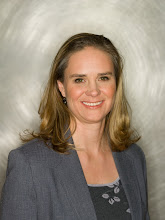KA: Jennifer, could you tell us a little about your practice as a psychotherapist?
I work primarily with children and their parents. In order to effectively help a child I have found it most helpful to also work with their parent(s). What that typically looks like is that I have one appointment per week (50 minutes) with the child and one appointment per month (50 minutes) with the parent(s). Depending on what is happening in the child and family’s life that may mean more appointments or less.
In my sessions with children I employ a variety of modalities; play therapy, art therapy, talk therapy and sand tray. Children, even under the most extreme stress, have a natural drive toward health. My job is to help them find their way back to a normal, healthy developmental progression. Children walk through this world doing their best to make sense of what they experience; they create a story as to how and why it all works this way. I work with children and their parents to ensure that they are creating helpful, nurturing, realistic stories.
One of the main reasons I work closely with parents is that I aim to enhance the parent/child relationship. Certain life stressors such as loss of a family member, divorce, or a life threatening illness will strain a child/parent relationship. In order for deep healing to happen we need to help bolster the child/parent relationship.
KA: How would a parent know that their child might benefit from seeing a therapist?
Good question. Sometimes it is obvious – a major loss (death of a family member, a divorce), a parent’s illness (cancer, depression…), symptoms of struggle with depression or anxiety (sleep problems, eating issues, thoughts of self harm, inability to participate in typical daily activities) or maybe a sudden change such as refusing to go to school when previously they loved school.
Sometimes it is not so obvious but more of a subtle feeling that a parent may have that something is “off”; perhaps a child does not react to a major event like a death, or there is a behavioral change that seemed like a phase that has gone on for much longer than is comfortable for everyone, or a parent notices that the whole family is making special arrangements to accommodate their child’s behaviors (not going certain places, adjusting schedules to avoid certain scenarios).
KA: How is this different than a parent seeing a therapist about the stress of parenting?
Parenting is without question the most difficult and rewarding “job”. I have a lot of respect for parents who are brave enough to investigate potential sources of support. During our initial conversation we discuss whether or not your child will benefit from therapy. The monthly parenting consultations are designed to address specific questions about your child based on my experience with them. As an example a child might have sleeping problems six months after the finalization of a divorce, which could seem unrelated. In a parent consultation our collective experience of the child will provide a way for us to problem solve together.
KA: How do you pick a good therapist for your child and what other concerns should you have such as confidentiality?
My recommendation is to talk with a few child therapists. They should be happy to spend some time with you on the phone and answer any questions you may have. Therapy only works if it is a good “fit”. It is important that you feel like a therapist truly hears you and includes you in your child’s process.
It is a very personal decision. Websites are one way to begin searching and learning about different therapists. Talking with friends or colleagues can help you gather some names. I would recommend you ask if a therapist specializes in children. You should expect their office to be welcoming to a child (toys, art supplies available). Ask them to tell you about their office in an initial phone call. Ask them what a session may be like for your child.
I am very cautious about confidentiality. When it comes to children I feel you can’t be too careful. This is one reason I have chosen to not accept health insurance. If a therapist submits an invoice to an insurance company they need to include a diagnosis, which will go into a client’s medical records. I feel that to be an ethical conflict in most cases. Keeping a mental health diagnosis out of a child’s medical records can also avoid misuse in custody disputes.
The child’s well being is the focus and that needs to be protected at all expense. When a parent seeks counseling for their child they are making an investment in the child’s future and healthy development. Often a child moves through a “diagnosis” such as obsessive-compulsive disorder and it doesn’t warrant locking them into that label. There is a fine line between naming a diagnosis and actually identifying the problem in your child’s life.
My recommendation to all the parents I work with is to trust their instincts, do some research and know that you know your child better than anyone. What I offer is another way to approach problem solving for you and your child.
Jennifer Stoakes, MA
(206) 409-7220
http://www.psychotherapynw.net/
My office is located in the Maple Leaf neighborhood in Seattle



